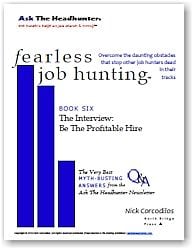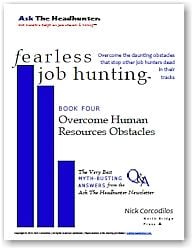In the March 24, 2015 Ask The Headhunter Newsletter, a reader complains about investing time in employment tests before the employer invests time in an interview.
Question
I applied for a Senior Director position with a large healthcare software company. I was “selected” by HR to begin the recruitment process, which starts with “assessment tests” such as aptitude and personality tests. The largely canned e-mail they sent me states that I should block off two hours to complete these examinations, and I was provided with a link and logon information to the assessment website. Mind you, I still have not talked with the hiring manager.
I don’t really have two hours to perform these silly tasks, though the job itself does sound challenging from the description provided. Is there anything I can do to bypass this process, or should I just run and hide from this firm? How can I be sure the third party contracted to perform the assessment isn’t selling or trading my information with other employers without my knowledge? Thanks very much, I am a big fan of your blog.
Nick’s Reply
Glad you enjoy the blog — thanks for your kind words.
My approach to situations like this is not to say no. It’s to set terms you are comfortable with, and then let the employer say yes or no. If your terms are prudent and reasonable, and they say no, then you know something funky is up — and that you’ve really lost nothing in the bargain. You merely avoided wasting your time.
But I don’t think it bodes well when a company wants you to do tricks to get an interview, so you’re justified to be concerned. What I’m about to suggest will likely result in your being rejected from further consideration by this company.
- I’d tell HR you’d be happy to comply with their request, but your busy schedule precludes you from filling out forms and going through administrative processing (tests) until you and the manager “establish good reasons to pursue the possibility of working together.” In other words…
- No testing prior to meeting the hiring manager. Why invest your valuable time if they won’t invest theirs?
- No testing with third-party firms unless they provide in writing (a) a disclosure that defines who will have access to your results, (b) a confidentiality statement (signed by the testing firm and the employer) stating that they will not disclose your results to anyone without your express written permission, (c) credentials of the test administrators and those who will score and interpret the results, and (d) written assurance that they will provide you with results and interpretation of your tests.
The last word about why pre-employment tests should concern you is this article by Dr. Erica Klein: An Insider’s Biggest Beefs With Employment Testing.
Now let’s get down to business. You’re interested in the job you read about, so pursue it on your own terms.
I’d contact the office of the person you’d be reporting to if hired. (See Should I accept HR’s rejection letter? for some tips.) I’d politely explain that you’re glad the company wants to interview you, and that you’d be happy to come in to meet and talk. If you mutually decide to continue discussions about a job, you’d be happy to take tests and suffer through the HR gauntlet.
How to Say It
“I get a lot of requests to do such tests but I judge how serious an employer is about me as a candidate by whether they will invest the time to meet me first. I always go the extra mile for a company that demonstrates that level of interest. In fact, if you have time to meet, I’ll be glad to prepare a plan for how I’d do the job — and we can discuss it.”
I’m sure you get the idea. The point is to say this to the hiring manager — not to HR. If you need help with that last part, see Fearless Job Hunting, Book 6: The Interview: Be The Profitable Hire, particularly the sections, “How can I demonstrate my value?” and “Are you an A or B candidate?”, pp. 8-11. I think that offering to arrive with a business plan in hand will reveal whether the manager is on the ball. How could any good manager not be intrigued?
As you’ve already surmised, the odds are extremely high that the HR department really doesn’t know whether you are a viable candidate. They’d rather spend money on tests to filter you in or out, than spend the hiring manager’s time to interview you to make a judgment. So, I don’t think you have much to lose. At this juncture, you’re probably not a serious contender. If you were, they’d handle you with kid gloves and they’d be seducing you rather than harassing you.
Of course, the tests might be useful, interesting and valid tools to judge your skills. After you talk with the manager.
Your last concern is valid. Those third-party testing companies invariably own your results. The papers you sign usually give them the right to share your results with anyone they want to, including some other company that obtains your resume — and looks up your test results because it’s already the testing firm’s client. You could get rejected without ever knowing why.
Be careful. Use your judgment. Be polite, be professional, but don’t be a sucker. Expect the kind of professional treatment and consideration that you give others.
Have employment tests taken the place of screening interviews? Is this just another way to save HR time? More important — does this extreme testing practice waste your time or help you get interviews?
: :





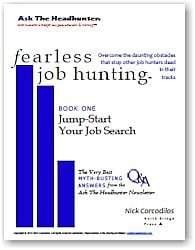
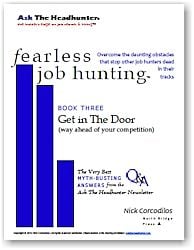
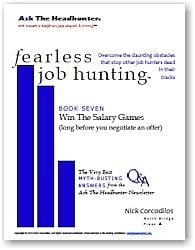
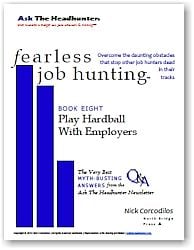
 Here’s the blasphemy: You write your resume only after you’ve talked to the hiring manager. It’s not your “marketing piece” and it doesn’t “introduce you.” You introduce you.
Here’s the blasphemy: You write your resume only after you’ve talked to the hiring manager. It’s not your “marketing piece” and it doesn’t “introduce you.” You introduce you.
